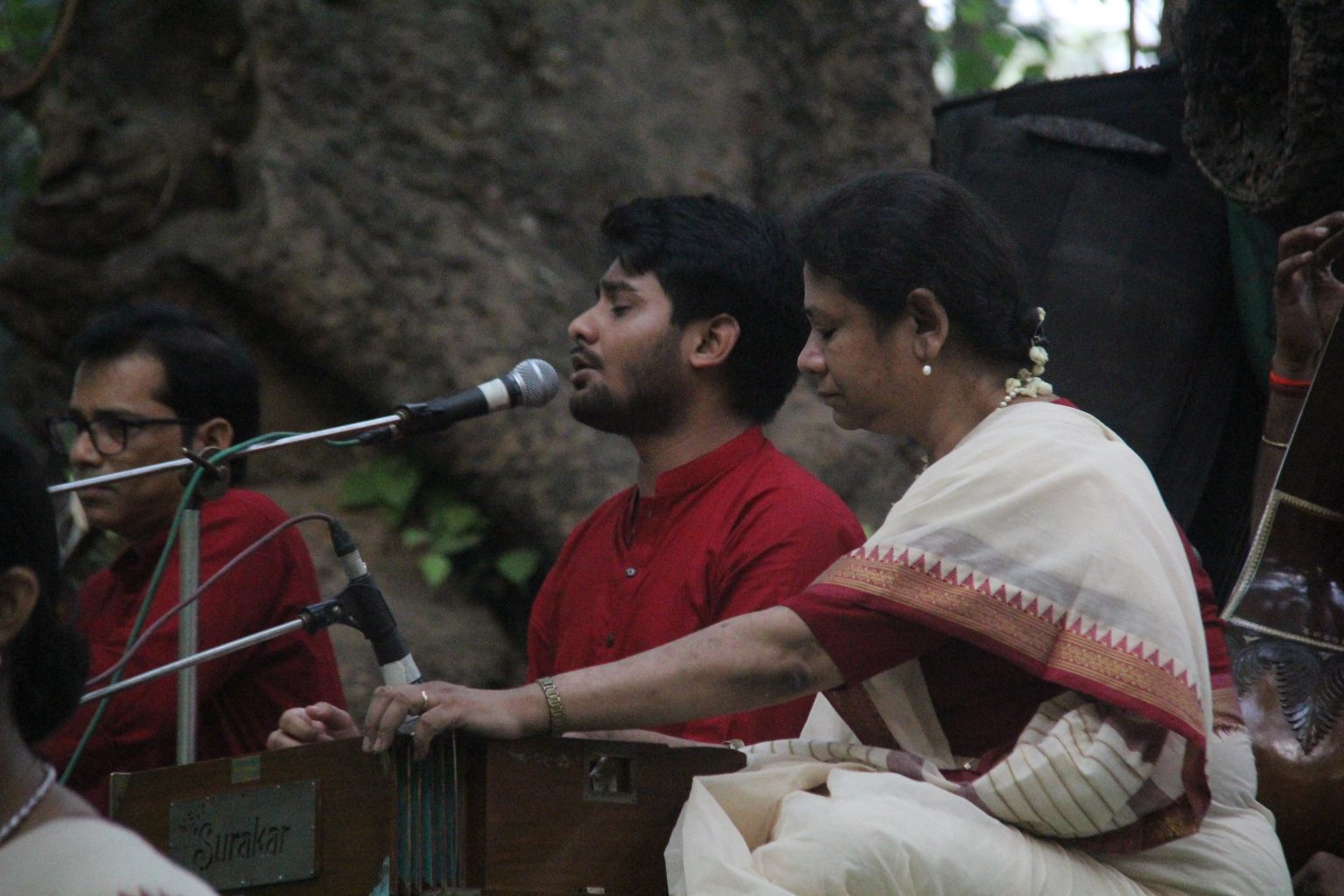With the first light of dawn filtering through the sprawling branches of the trees at Ramna Park, the resonant notes of raga Ahir Bhairav floated into the crisp morning air — marking the beginning of Bengali New Year 1432, celebrated in tradition and harmony by Chhayanaut.
As in every year, the cultural organisation ushered in the new year with its signature celebration, drawing thousands of early risers who gathered around the iconic venue, many dressed in white and red, adorned with garlands of marigold and palash.
This year’s theme, `Amar Mukti Aloy Aloy’ (My liberation lies in light itself), set the tone for a programme steeped in poetry, nature, and patriotism — honouring both the past and the promise of a brighter future.
“Borsho Boron is not just a ritual — it’s a reminder of who we are. In music and in light, we renew our collective hope,” said Laisa Ahmed Lisa, Vice President of Chhayanaut and a leading singer of the country, addressing the gathering before the first performance.
The stage, an elegant half-moon setup measuring 72 feet across and 30 feet deep, was framed with traditional motifs and backdrops inspired by rural Bengal and the changing seasons. Against this vibrant canvas, artists performed songs by Rabindranath Tagore, Kazi Nazrul Islam, and folk legends that captured the essence of Bengali resilience and joy.
Over 150 male and female performers participated in the programme, which featured a total of 24 performances—including 9 group songs, 12 solo performances, and 3 recitations.
The event showcased songs celebrating light, nature, humanity, and patriotism.
The celebratiion however missed the presence and speech of Chhauanaut president Sanjida Khatun who passed away on 25 March.
Male performers wore maroon panjabis paired with white pajama trousers, while the female performers were dressed in off-white sarees with maroon borders.
The stage decorations were also themed in maroon, creating visual harmony with the performers’ attire.
According to Chhayanaut, the stage structure remains consistent every year, with only the color scheme changing to match the performers’ costumes. Last year, the stage featured a light green color theme.
Among the performances, the chorus rendition of “Amar Mukti Aloy Aloy’ and `O Alor Pothojatree’ drew waves of applause from the audience, many of whom sang along with hands raised to the sky.
“I’ve been attending this event for 15 years, and it never fails to move me,” said Faria Zaman, a university student. “It’s where the soul of our culture lives.”
Security was visibly present but non-intrusive, and volunteers from Chhayanaut ensured smooth crowd movement and distribution of event pamphlets. Alongside the music, the scent of seasonal blooms mingled with the earthy fragrance of morning dew — creating a multisensory experience of renewal.
As the programme ended, it reminded everyone of the enduring power of art to unite and uplift.
“In today’s world of noise and haste, this quiet dawn of songs and tradition is a revolution in itself,” remarked Anisuzzaman, a senior citizen who was present in the audience.
In concluding remarks, Chhayanaut Executive President Sarwar Ali said: In pursuit of freedom, through a long and arduous journey, Bangladesh attained independence more than five decades ago — earned at the cost of immense sacrifice. The imprints of that journey remain etched in history, chronicled through the art, literature, music, and architecture of the Bengali people.
“In the struggle for self-determination, this inclusive and secular celebration of welcoming the Bengali New Year has added a profound dimension, transcending divisions of faith, ethnicity, and class,” he said.
“We envision a radiant nation and society — one where peace, dignity, and security are ensured for all, and where barriers of religion, race, and wealth give way to a tolerant, compassionate community grounded in mutual respect.”
Yet, Sarwar Ali said: the path to realising this dream has not been without challenges. Even within an independent homeland, the Bengali people’s pursuit of human dignity has witnessed both hope and heartbreak. On this dawn of the new year, we glance through the metaphorical ledger of gains and losses: on one side, the people’s unrelenting yearning for liberation; on the other, the painful realities of discord, violence, the degradation of women and children, and the consequences of intolerance.
“While it is the state’s responsibility to remedy such grievances, society too must shoulder that burden. If we all commit to preserving history and heritage, embracing fearless expression of free thought, and ensuring the unimpeded continuation of our timeless culture — then surely the path to a luminous future of freedom will unfold before us,” he concluded.
This was Chhayanaut’s 58th consecutive New Year’s celebration at Ramna Botomul (excepting during the Liberation War in 1971) — an event that has now become a symbol of Bangladesh’s secular, inclusive cultural heritage.
Since 1967, Chhayanaut has been organising this cultural gathering at Ramna Batamul on the first day of the Bangla New Year (Pahela Baishakh), continuing its legacy of celebrating Bengali heritage and identity through music and performance.
This year’s celebration was broadcast live on Chhayanaut’s official YouTube channel and Facebook page, and also aired by several national television channels.


